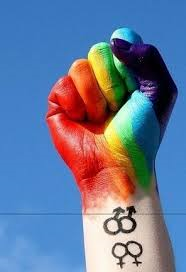A Prejudice Plague

April 11, 2017
Activist are now fighting for recognition in the annual federal census that is taken every ten years, bringing sexual orientation into politics. The data collected by the decennial census is used to distribute billions in funds to accommodate citizens, their local communities, and their needs.
The census includes questions regarding race, ancestry, education, health and housing. LGBTQ+ activists as well as 60 congressional democrats, are requesting that the census should take into account how many LGBTQ people are in the United States, and what they might need compared to heterosexual Americans.
Meghan Maury, criminal and economic justice project director of the national LGBTQ task force, believes that the LGBTQ community should be taken account for, and called out the Trump administration for not including them, according to Steve Kurtz from FOX News.
“Today, the Trump administration has taken yet another step to deny LGBTQ people freedom, justice, and equity, by choosing to exclude us from the 2020 census,” she said. Despite the fact that questions regarding the LGBTQ community have never been included in the U.S census, and a couple years ago the LGBT community would have seen such inquests as an invasion of privacy, they are now fighting to be recognized by their sexual preference.
One argument stated that because the LGBT community wasn’t included in the census their medical needs wouldn’t be acknowledged, putting them at a disadvantage. The LGBTQ believes more attention needs to be brought to mental illnesses such as, depression, anxiety and suicide ideations. Statistically they generally appear to experience poorer health, with no information on common and major diseases, cancers or long-term health issues.
According to Mind for Better Mental Health (www.mind.org.com ) almost all of these symptoms can be connected to discrimination bullying, homophobia, biphobia or transphobia. The average percent of homophobes in the United States according to various websites is about 41%.
The 2003 National School Climate Survey showed that 92% of LGBTQ students reported frequently hearing homophobic slurs. The website argues against examples such as “’faggot,’ ‘dyke,’ or ‘that’s so gay.’” It also stated that under-reactions from school staff members was a contributing factor to worsening the situation, and occasionally teachers would make similar remarks.
Without recognition in the census, no possible advancements could be made regarding the well-being of the LGBTQ community. The U.S has yet to officially look into sexual preference and its connection to mental illnesses, giving the LGBTQ people the short end of the stick.
Recognizing the amount of LGBTQ citizens in communities and acknowledging their needs is a good step to take in reaching equality, despite sexual preferences.

